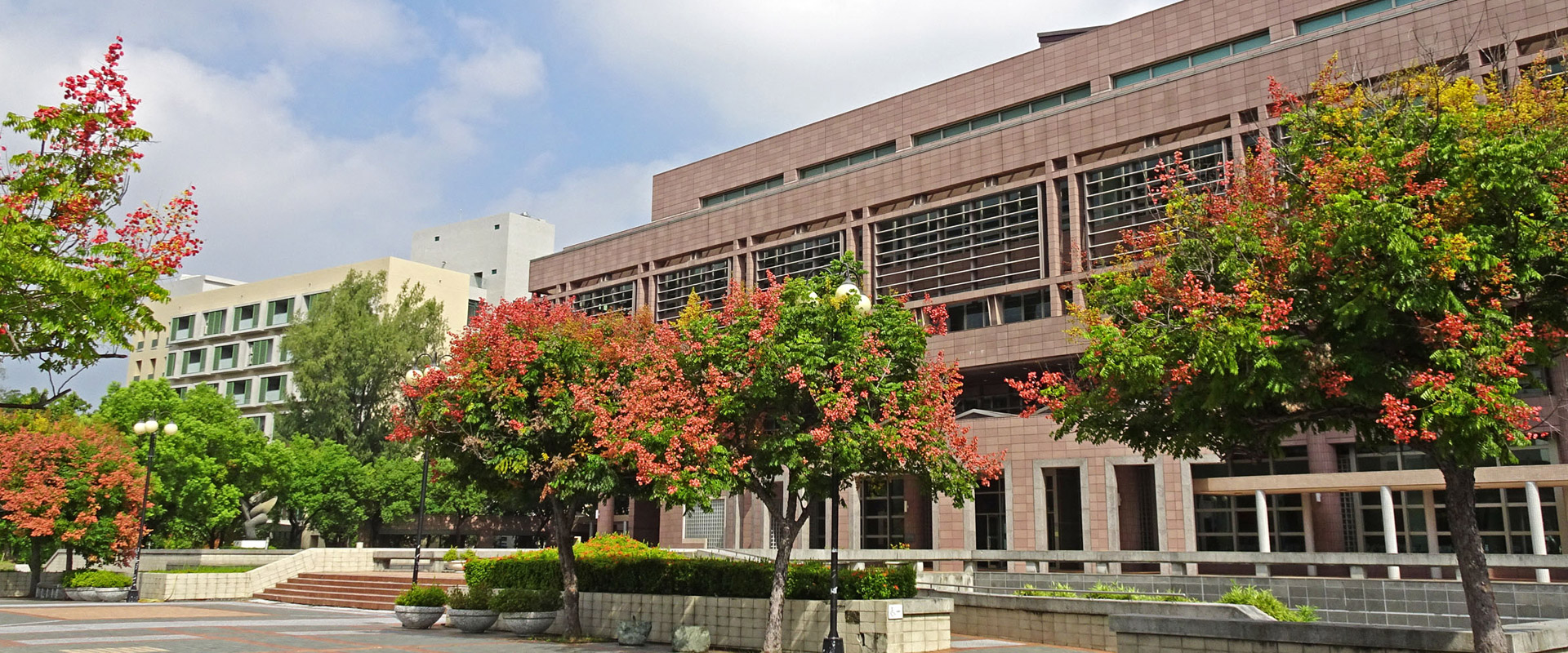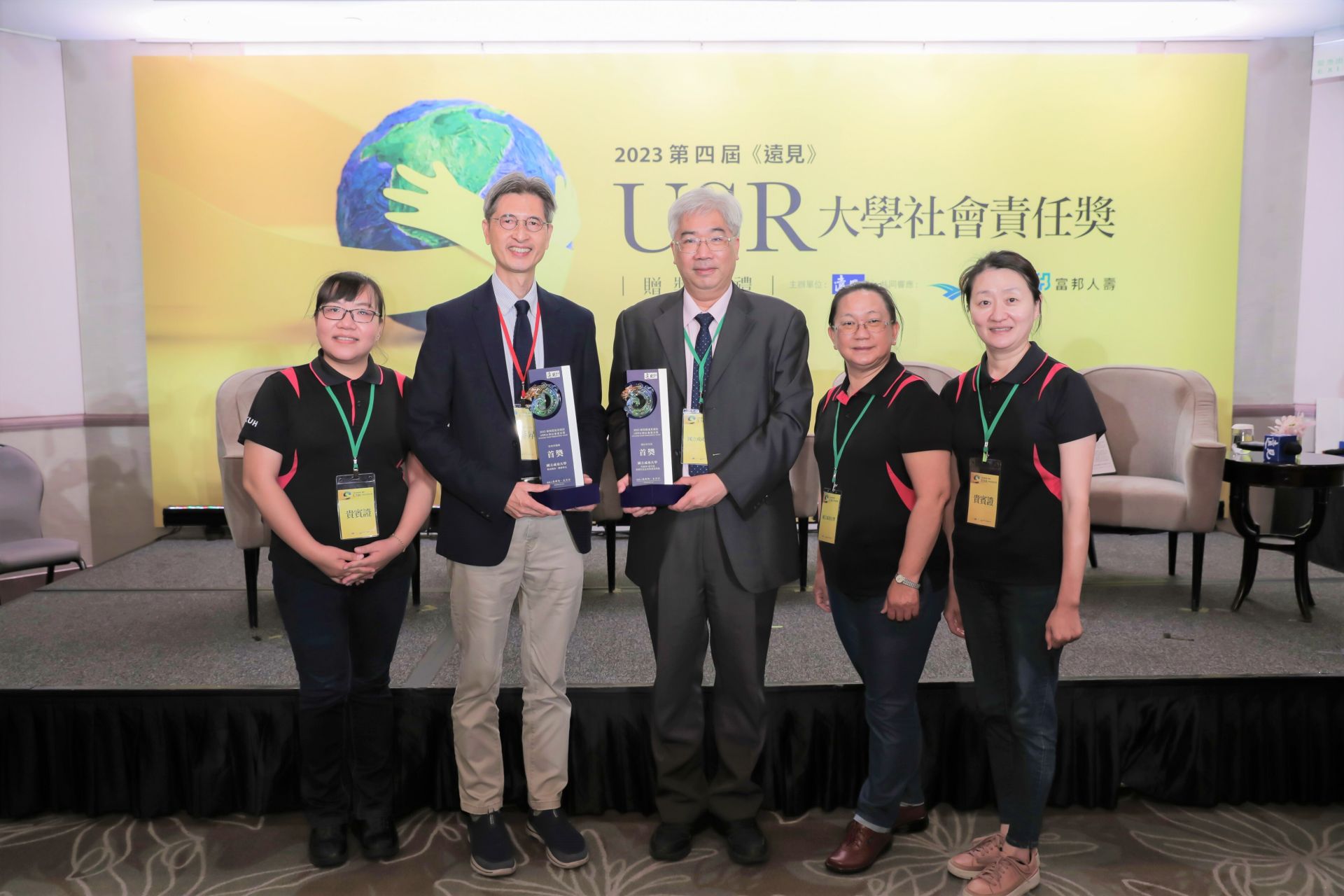
2023 The fourth Global Views University Social Responsibility Award (第四屆《遠見》大學社會責任獎)- NCKU is the biggest winner for the second consecutive year, with two awards for "Local Inclusion" (在地共融) and "Well-being Coexistence" (福祉共生).
Shen Meng-Ru (沈孟儒), the former Dean of NCKU Hospital, attended the ceremony to receive the first award of "Well-being Coexistence." In his speech, he pointed out that hospice home care is the highest medical model as it requires a lot of patience, love, and professionalism to make the last stage of life smooth and stable. As a comprehensive top university with a complete healthcare system, NCKU is able to provide the best medical care in southern Taiwan and even in the whole Taiwan. Besides fulfilling NCKU's social responsibility, Shen Mengru emphasized the importance of promoting higher education.
Professor Jeng Tay-Sheng (鄭泰昇) of the Department of Architecture at NCKU, who received the first award for "Local Inclusion," thanked Fu Chaoching (傅朝卿), the Emeritus Professor, for his guidance, and appreciated the support from the current President Shen Meng-Ru (沈孟儒) and former President Su Huey-Jen (蘇慧貞). Prof. Jeng Tay-Sheng pointed out that the Matsu renovation project is a way to plant seeds on the Cold War islands in anticipation of future artistic blossoms, carrying with it the meaning of realizing Taiwan's values and telling the world that Taiwan loves art and peace. Therefore, the USR program is not only a creative effort for Taiwan, but also a responsibility to Taiwan as a whole.
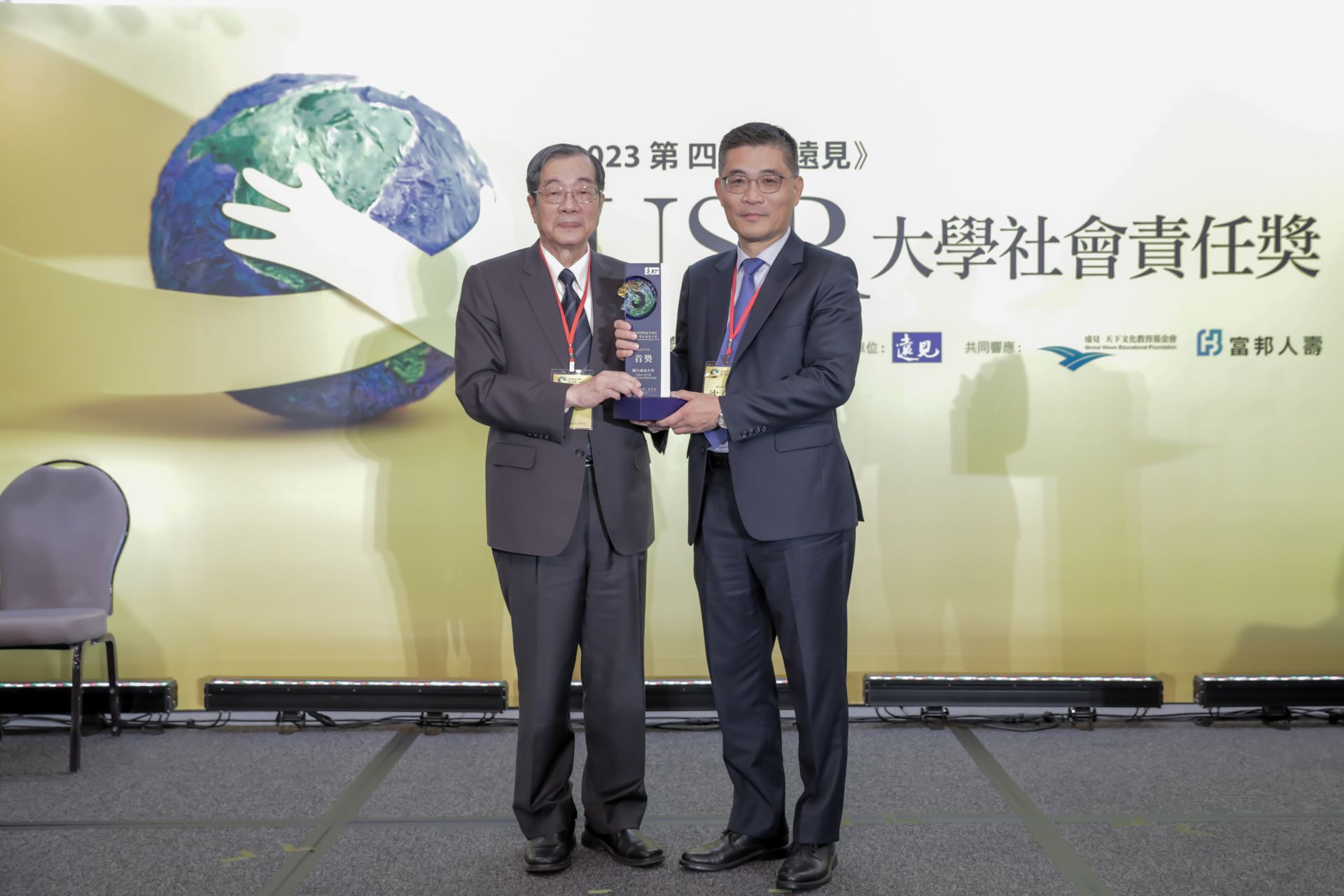
Shen Meng-Ru(Right), the former Dean of NCKU Hospital, attended the ceremony to receive the first award of "Well-being Coexistence"
This year, there were 120 entries in The fourth Global Views University Social Responsibility Award, competing for seven categories of awards, and finally awarded seven first prizes and 16 model awards. In addition to the existing categories, a new category of "Green Campus" was added to the outstanding program, and the overall performance was changed to "University Sustainability Report" this year.
The first award in the " Local Inclusion" category, "Translating and Regenerating the Military Heritage in Matsu" (戰地轉身.轉譯再生) is a spatial reinterpretation project focusing on the Matsu military heritage. The design and cultural power of the reinterpretation project is used to develop new spatial functions, new spatial meanings, and new exhibition themes in dialogue with the former heritage base, and to enrich the island's charm. At the same time, through a rolling, phased physical action, including: integrated strategic planning, as well as relationship collection, art collection and systematic presentation of the site, dynamic data accumulation and online exhibition.
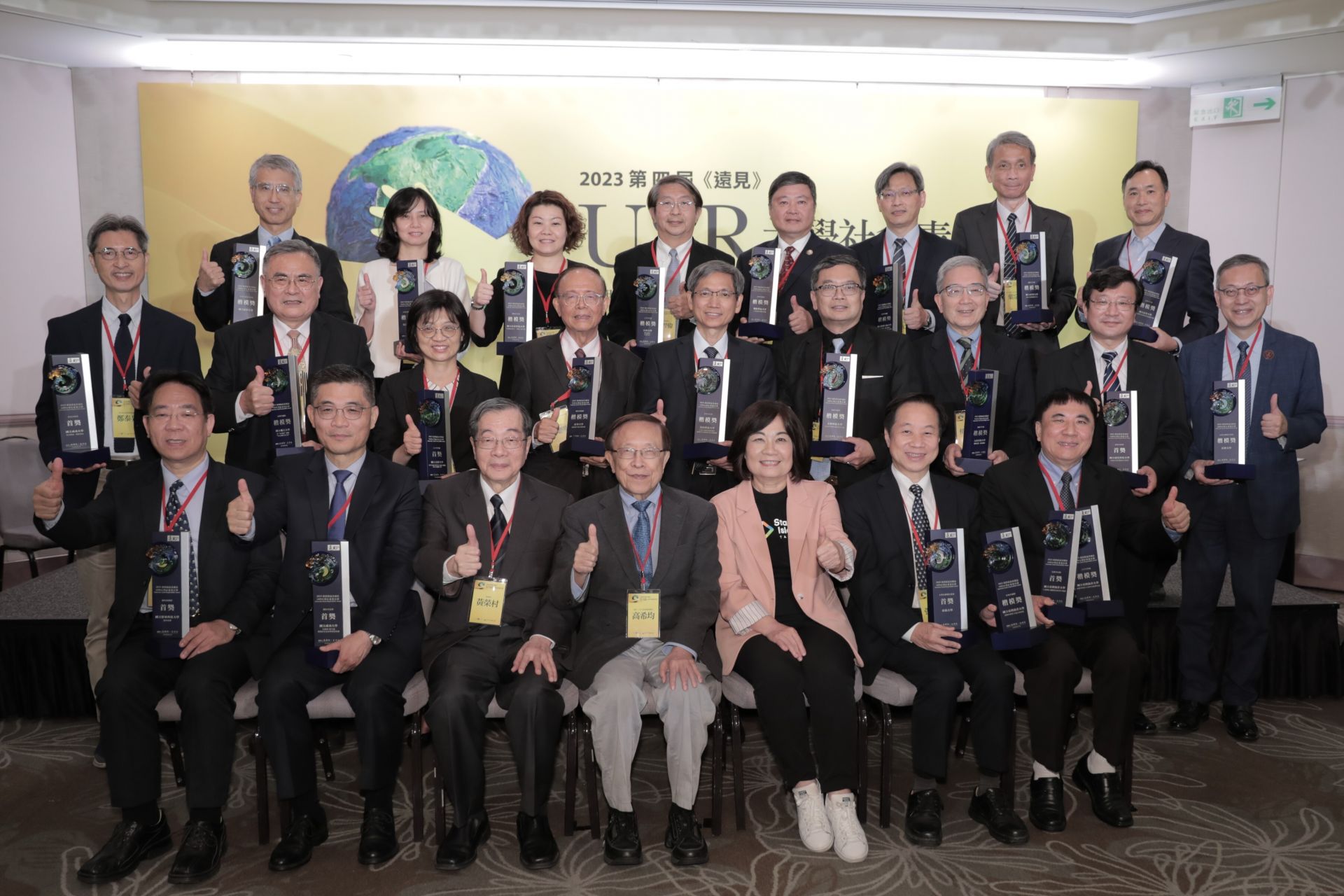
There were 120 entries in The fourth Global Views University Social Responsibility Award this year, competing for seven categories of awards, and finally awarded seven first prizes and 16 model awards.
Professor Jeng Tay-Sheng (鄭泰昇) led a multidisciplinary team of more than 10 faculty members from the departments of architecture, urban planning, industrial design, creative industries, technology and art, and history, including the Emeritus Professor , Fu Chao-Ching (傅朝卿), as general counsel, Professor Ma Min-Yuan (馬敏元), Department of Industrial Design; Professor Wu Ping-Sheng (吳秉聲), Department of Architecture; Associate Professor Chien Sheng-Fen (簡聖芬), Department of Architecture; Associate Professor Chang Hsiu-Tzu (張秀慈) , Department of Urban Planning; Associate Professor Yang Chia-Han (楊佳翰), Institute of Creative Industries Design; Associate Professor Lin Hui-Wen (林蕙玟), Institute of Creative Industries Design; Associate Professor Hsieh Shih-Yuan (謝仕淵), Department of History; Assistant Professor Lin Hsuan-Cheng (林軒丞), Department of Architecture; Assistant Professor Huang Chung-Ching, The Cross College Elite Program; Kung Po-mink (龔柏閔) , Executive Director of the Design Center ; and a team of renowned architects and inter-university collaborators.
With the theme of "Translating and Regenerating the Military Heritage in Matsu" (戰地轉身.轉譯再生) (2020-2022), NCKU has made a comprehensive integration and strategic planning. From the four major perspectives of "World Heritage Potential Sites," "War Zone Heritage Interpretation and Regeneration," "Preservation, Interpretation and Regeneration of War Zone Cultural Landscapes," and "Island Museum/International Art Island," the project assisted Matsu in recreating the historical site of Lianjiang County. "
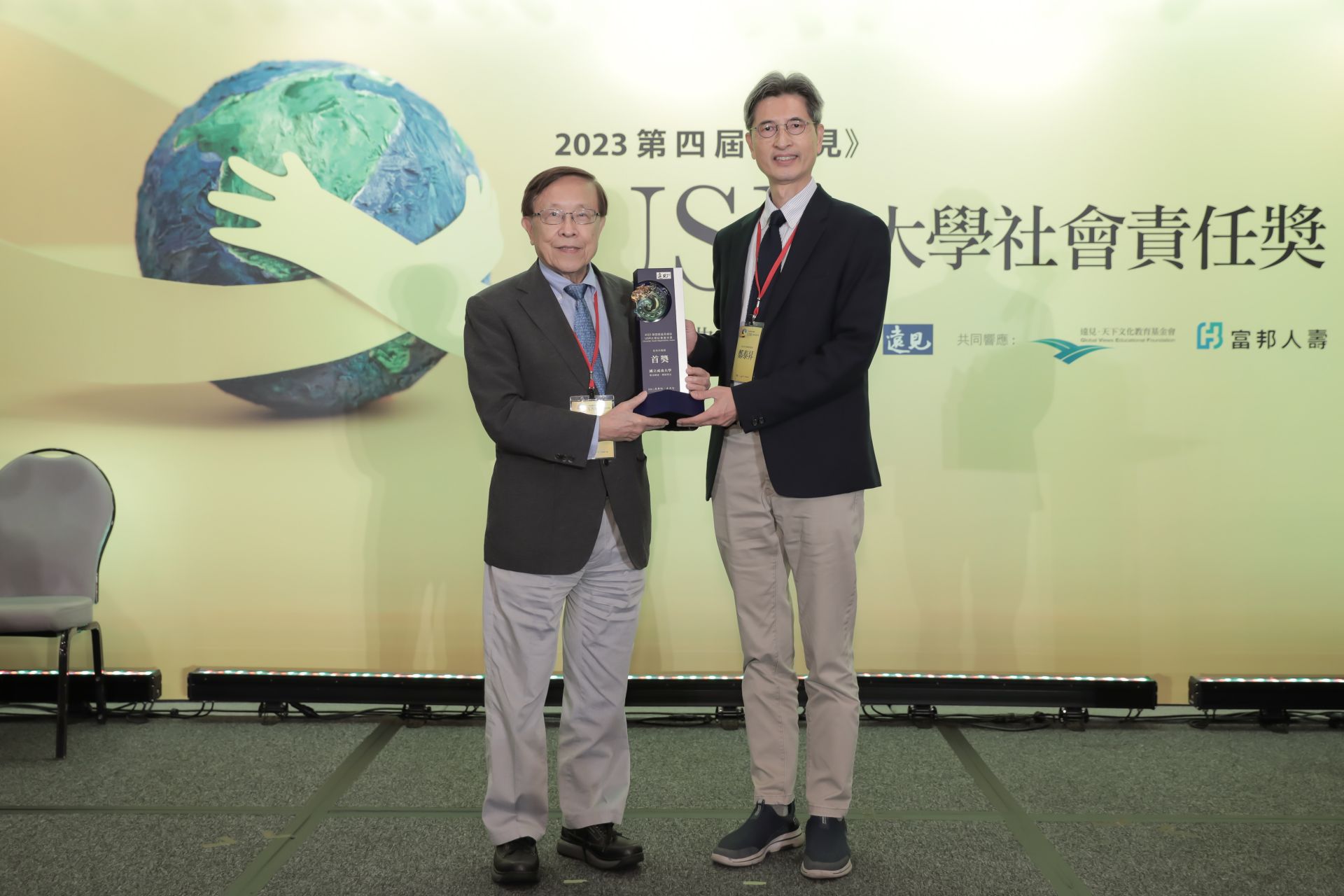
Professor Jeng Tay-Sheng(Right) of the Department of Architecture at NCKU, received the first award for "Local Inclusion”
During the implementation of the "Translating and Regenerating the Military Heritage in Matsu'' (戰地轉身.轉譯再生) project, a comprehensive partnership between NCKU and Matsu was developed. In November 2020, President Su Huey-Jen led NCKU's Executive Innovation Consensus Camp to Matsu. This is the first time since the founding of the university that nearly 60 executives have flown together to hold a consensus camp on an outlying island, fully demonstrating the high level of support and sincerity for this project. Lienchiang County Mayor Liu Cheng-Ying led the officials waiting for the flight, while NCKU arranged for Administrative Vice President Lin Minn-Tsong of NSTC to give a lecture on science and technology and Fu Chaoching,the Emeritus Professor of NCKU to give a cultural lecture. After seeing Matsu's unique landscape in person, they were able to deepen the integration of humanities and technology and build a consensus on a vision for higher education.
In 2021, they made the Matsu 90 Memorial Wine together, in 2022, they signed a memorandum of cooperation of the Matsu MicroCollege to break through the university's existing institutional framework with a new type of "microcollege" organization, linking Matsu's local energy with the interdisciplinary resources of higher education to create a small, mission-driven, project-driven, problem-oriented learning institute centered on the island. Through Taiwan's unique island discourse and practice, it will shape the global context of island multiculturalism and global sustainable development.
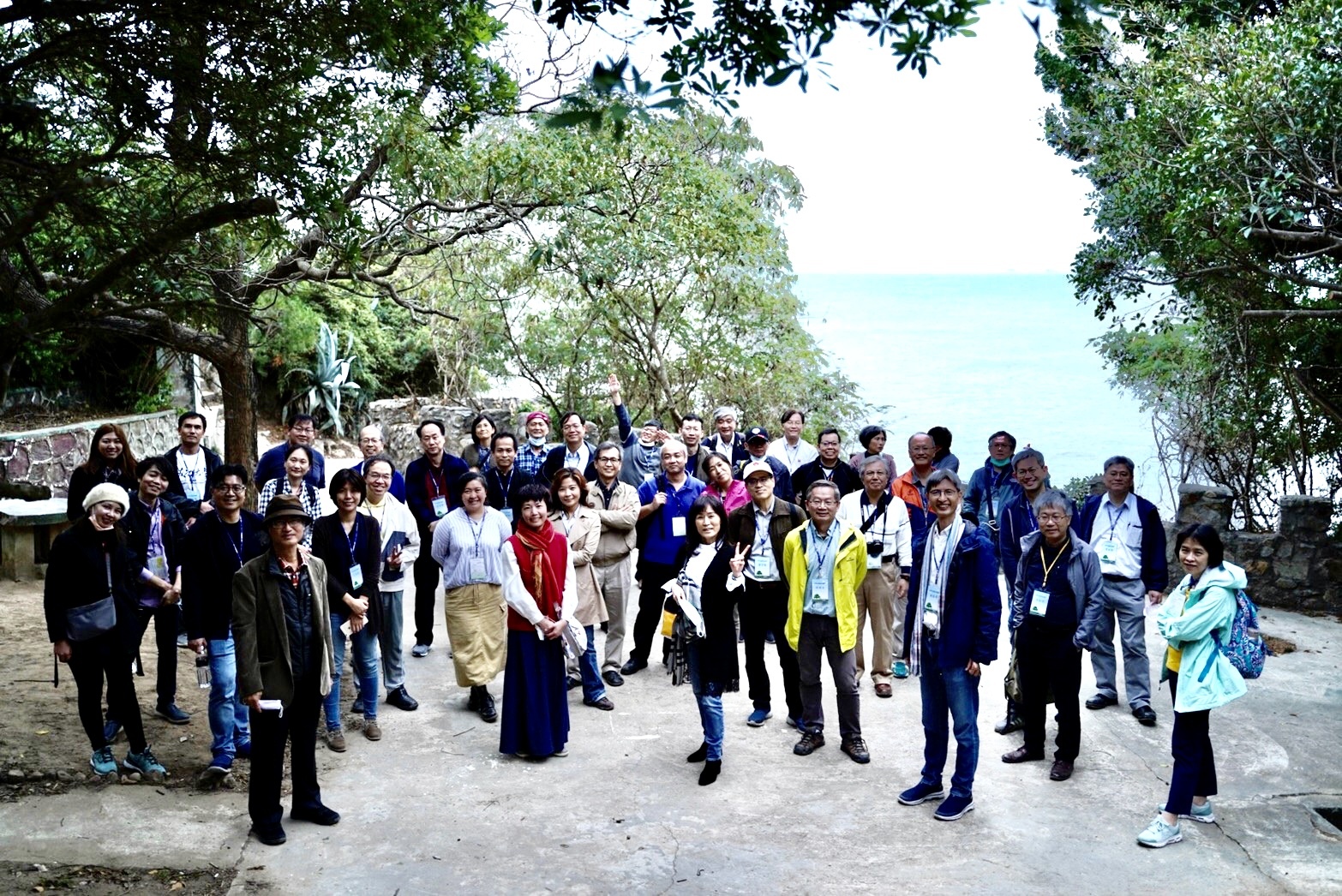
To develop a comprehensive partnership with Matsu, President Su Huey-Jen led NCKU's Executive Innovation Consensus Camp to Matsu in November,2020.
NCKU also won the first prize of the "Well-being Coexistence" award with the "Home Care project-宅善終~愛守護-優質的五全安寧居家照護". Associate Professor Lin Peng-Chan, Director of the Hospice Ward at NCKU Hospital, led the team. When the patient's recovery rate is low and the countdown to life begins, not only "cure" but also "care". The promotion of the project is to move the care spot from the hospital to the patient's home, and not to return to the hospital hospice ward unless necessary. The so-called "five holistic" means "whole person" patient-centered physical and spiritual care, "whole family" care for the patient, "whole process" grief relief for the bereaved family members, "whole team" combining various professions of the team to provide all-round care, and "whole community" cooperating with community clinics and home care centers to achieve mutual benefit. The hospice provides a hospice home for terminally ill patients to die at home, so that their families can be reunited in their last days of life, save medical expenses with limited medical resources, avoid ineffective medical treatment, and create a four-win situation for the patient's family, hospital, society, and the country.
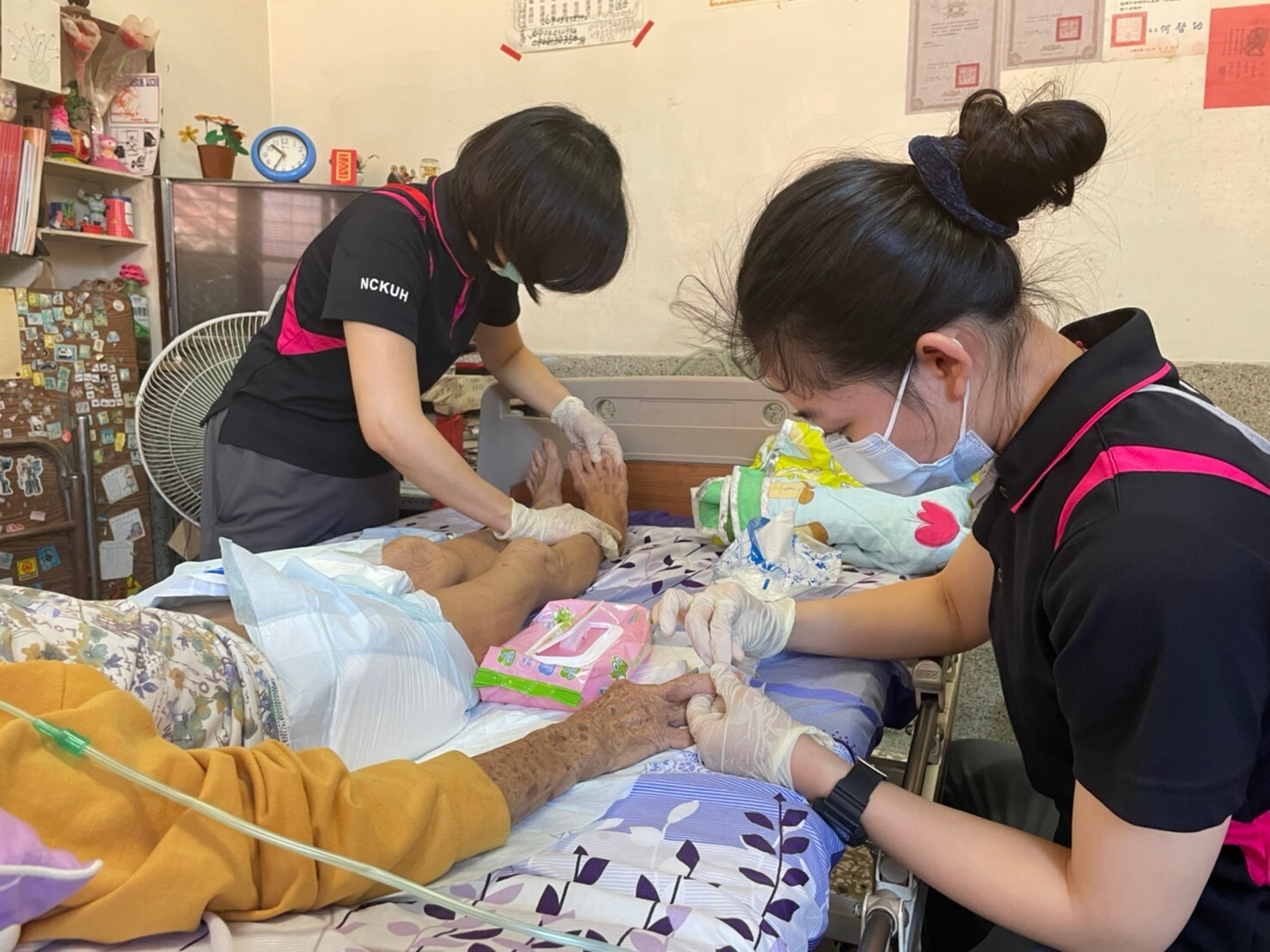
NCKU won the first prize of the "Well-being Coexistence" award with the "Home Care project-宅善終~愛守護-優質的五全安寧居家照護". The team emphasized that when the patient's recovery rate is low and the countdown to life begins, they should not only "cure" but also "care".
In 1994, the hospice pioneer in Taiwan, Chao, C. S.(趙可式), started a hospice group at NCKU. After nearly 30 years, NCKU has formed the largest hospice army in Taiwan, lining up doctors, nurses, social workers, music therapists, chaplains and volunteers to provide innovative, comfortable and precise care regardless of the patient's illness or age, on call 24 hours a day, across multiple disciplines. With the aging of the society and the reputation of services, the number of hospice patients in NCKU has increased year after year, and the number of services quantity exceeded 9,000 in 2021; the number of people served came to 623, 25 times the national average. In other words, the percentage of hospice patients at home is as high as 81.8%, which is not only the highest in Taiwan, but also significantly ahead of the 40.2% in Europe and 30.7% in the United States.
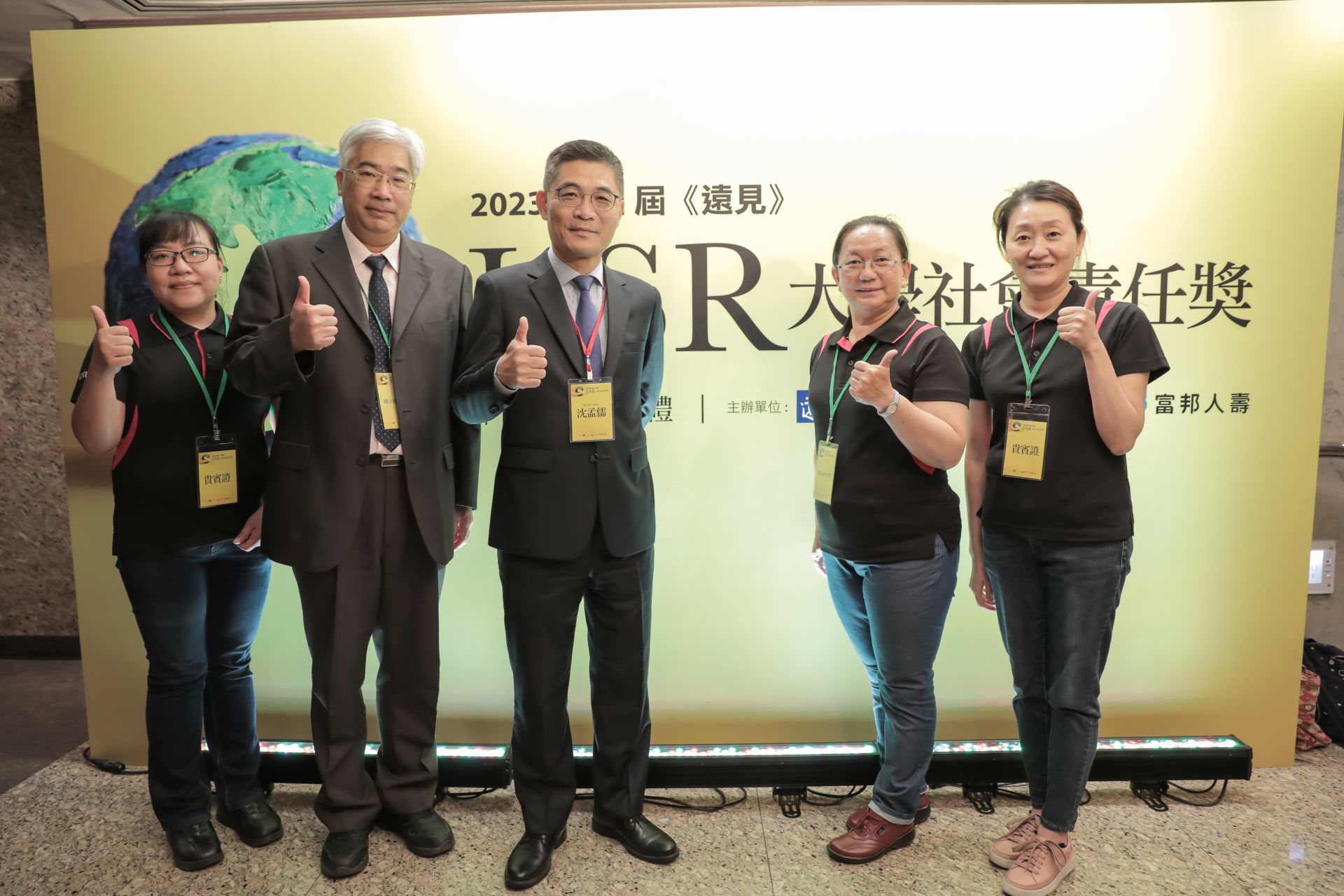
According to Dr. Lin Peng-Chan(Left 2.), Director of the Center for Hospice and Palliative Care at NCKU, "Hospice is the provision of a higher standard of care."
Many people misunderstand that "hospice and palliative care" is the same as "giving up treatment. In fact, according to Dr. Lin Peng-Chan, Director of the Center for Hospice and Palliative Care at NCKU, "Hospice is the provision of a higher standard of care." Hospice care does not delay or speed up death, but rather provides the most comfortable and dignified path of care for patients, so that they can get through the last mile of their lives with ease. To do so, the hospice team must understand the patient's past, care for the present, and predict the future, relying on big data. A database of more than 8,000 hospice patients from 2005 to 2020 has been assembled at NCKU, allowing for the development of treatment strategies at different stages. Dr. Lin Peng-Chan said that physical care is definitely a strength of the medical staff, but when medication is no longer effective, it is important to prioritize comfort care such as oil massage, comfortable hair washing and lymphedema care.
2023 The fourth Global Views University Social Responsibility Award-NCKU related media reports
【NCKU】 Home page focus: https://web.ncku.edu.tw/p/404-1000-252235.php?Lang=zh-tw
【NCKU】 Instant News: https://news-secr.ncku.edu.tw/p/404-1037-252236.php
【NCKU】SDGs web https://sdg.ncku.edu.tw/news-62.html
【Global Views】 https://www.gvm.com.tw/article/101553

